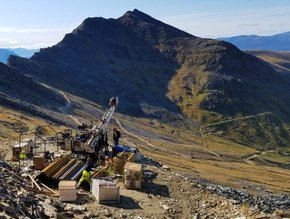Mines and communities: the long road to real partnerships in South Africa

A quick read of current headlines examining the South African mining industry, it is clear that there is a belief and a fear of growing levels of mistrust between mines and communities.
Tim Hart, SRK Consulting’s corporate social and development consultant, believes that South Africa is home to a breakthrough where partnerships between these mines and communities are now practically being built.
Hart argues that the narrative of treating communities as partners rather than beneficiaries has found its way steadily into the mining sector’s approach, but stresses that the difficulty has been to put that idea into action.
“There is the Social and Labour Plan framework and even the Mining Charter – an established instrument even though it is sometimes in dispute,” he said. “These give the mining sector avenues through which it can engage with government on development-related issues.”
The Chamber of Mines provides a space for mining companies – the larger ones, at least – to talk to each other about their respective efforts in pursuing development partnerships, he said, and there are also established structures to engage with labour.
“All of those elements are essentially in place, and it is not that difficult to form partnerships with institutions and organisations that already exist,” said Hart. “What is substantially lacking is the platform to talk to communities – as partners, not just as beneficiaries.”
One of the biggest issues that Hart believes continues to plague the conversation of community engagement is one of communication, with the very definition of a community in any specific place continuously in dispute.
“Communities are often ill-defined; just because people live together in a village does not necessarily mean they are a community,” he said. “Sometimes they are defined as such because they owe allegiance to a particular traditional leader; but in some cases, that traditional leadership might not be fully accepted.”
One could argue that it is not the mining sector’s job to get involved in community politics, or to decide which form of leadership is to be recognised in a community, Hart believes.
A better way to proceed is to provide the platforms to enable partnership and to set up the spaces where that partnership can happen.
This thinking was a key element in the evolution of the Alchemy Project, a unique approach to socio-economic development pursued by Anglo American Platinum; Hart was a member of the Alchemy Project team.
“The philosophy is to enable communities, through local development structures, to participate with their own resources in multi-party local development planning and mobilisation,” he said. “It is not the silver bullet, but it provides some valuable thinking and experience about the platforms we can use.”
The way forward that Alchemy has been charting is to mobilise corporate equity ownership in a way that brings benefits – as directly as possible – to the host and neighbouring communities. This has meant finding innovative ways for communities to organise themselves so that they can participate in formally registered ‘local development trusts’ which hold shares in Anglo American Platinum.
The formation of the trusts under this initiative, and the selection of initial trustees, follows years of engagement; Hart estimates that close to a year’s worth of ‘person-hours’ had been invested on a voluntary basis by community members assisting with trust establishment. Months of formal processes will follow to find and select community trustees who are representative and accountable. This has been, and will continue to be, a complicated and time-consuming process, he said.
Involving four platinum mines, the local development thrust of the project now addresses beneficiaries defined as anyone within a defined area encompassing the mine neighbourhood – including even those groups that have been resettled beyond the ‘benefit area’ as a result of mining. Moreover, a non-profit company will help facilitate development work in the mines’ labour-sending areas, many hundreds of kilometres from the mine sites.
“Perhaps the most important advance made by this work has been the structured and ‘step-wise’ process to grow and empower these development trusts, so that they promote full community ownership,” he said.
This has paved the way for an integrated and co-operative approach to the planning and execution of development around the mines, where the trusts can optimise their resources by collaborating with other development actors.
“Built on good governance and accountability, a development trust can leverage its own funds – from the dividends it regularly receives – by formulating plans and approaching partners like local government, development finance institutions and donors to also take a role and contribute,” said Hart.
The process is painstaking and consumes considerable resources in terms of time, effort and money. Given the current tones of disquiet in the sector, however, the question is whether the mining sector can afford not to invest in these bold and pioneering endeavours.






